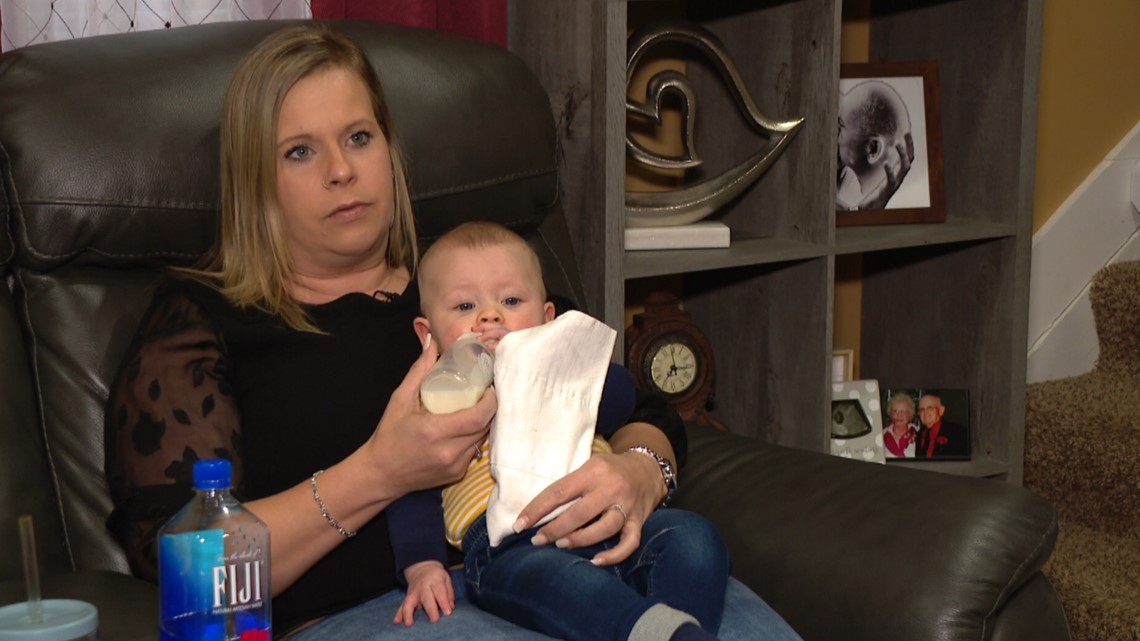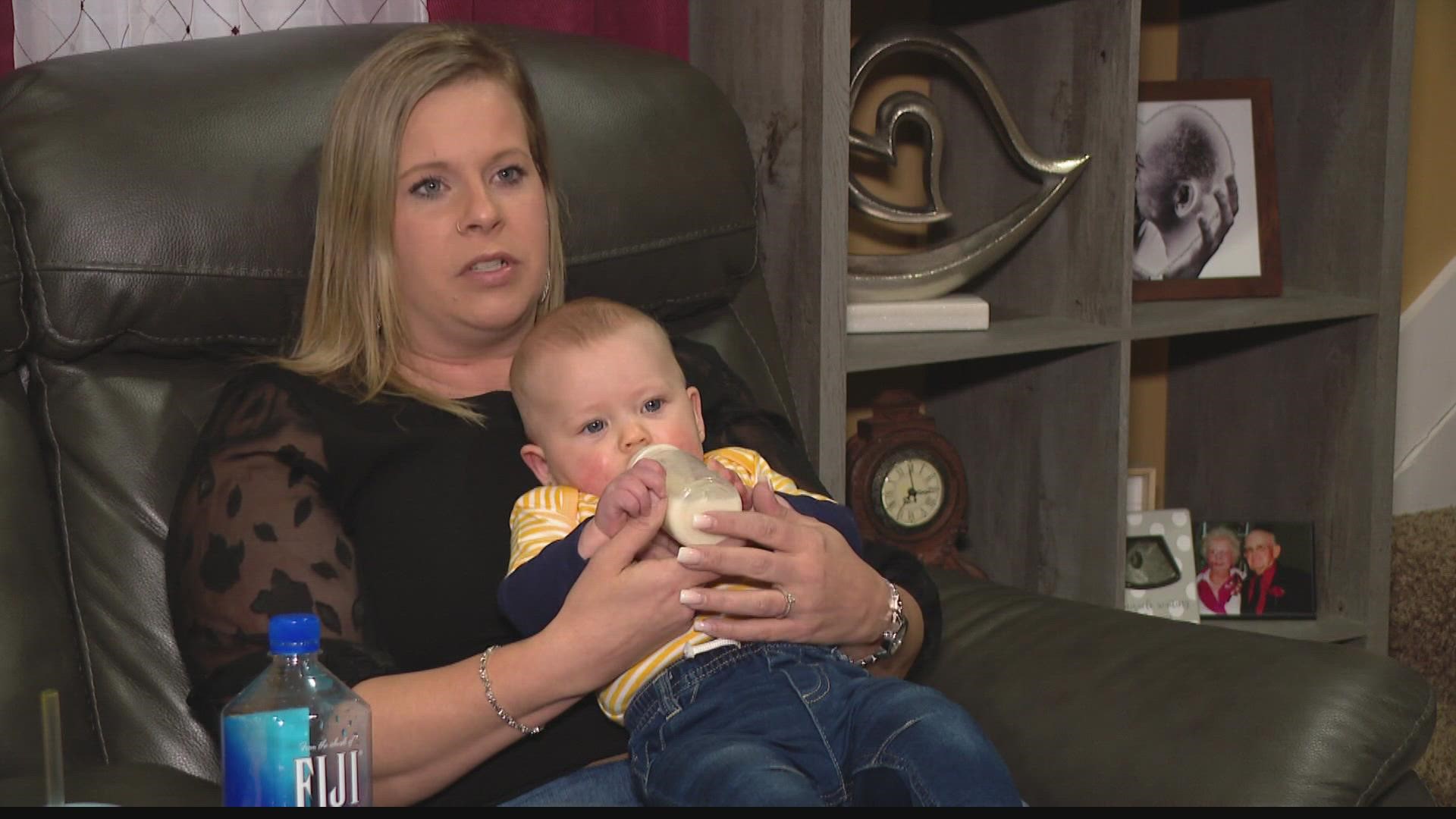INDIANAPOLIS — Every year, an estimated 1,400 babies are born to women in custody.
Until Thursday, in Indiana, incarcerated women were giving birth while shackled to the bed.
"I want to be present and just be the best mom that I can be," said 36-year-old Christina Kovats of the goal she’s strived for every day since the birth of her 6-month-old daughter, Teagan. "I just try and soak up every moment that I can get with her."
Every moment with Teagan is even more precious when Kovats considers the ones she missed with her three older children while she was in the Indiana Women’s Prison for six years.
In 2011, Kovats was convicted of neglect of a dependent.
"I was a CNA and I got into a car accident with a woman I took care of," Kovats explained, saying she was also under the influence at the time.
A week later, following her arrest, Kovats found out she was pregnant.
"Having a child is supposed to be one of the happiest moments of your life," she said.
Instead, for Kovats, the birth of her third child, a little girl, was one of the most traumatic, a moment Kovats said she still has nightmares about.
"The entire time I was at the hospital I was chained to the bed and that includes, labor, delivery, and after I had her too, post-delivery," Kovats explained, describing how she had a shackle around her left ankle, with a chain on it, attached to her bed. "It was this big heavy chain that was piled up at the end of the bed."


"Like an animal, you know? You feel like an animal caged, you know?" Kovats added.
That shackle and chain never came off, not when doctors gave Kovats an epidural for her labor pains, not during each contraction that hit and not in the exact moment when her baby came into this world.
"It’s the most painful and traumatic thing that I can recall," Kovats said.
Even after her daughter’s birth, Kovats stayed chained, even in the precious 36 hours she had to hold and bond with her baby before going back to prison without her.
"I had nightmares. I still do have nightmares," said Kovats.
Thursday, Governor Eric Holcomb signed into law a bill that will prevent what happened to Kovats and other pregnant inmates from happening anymore in Indiana.
"It’s unnecessary. It’s inhumane and it’s unsafe," said State Rep. Rita Fleming, D-Jeffersonville, a retired OB-GYN who authored the bill that passed unanimously this session in both the Indiana House and Senate.
The law prevents unnecessary restraints being used on pregnant inmates at the state or local level, inmates who are either in their second and third trimester, who are in labor or delivery or who have just had their baby.
Kovats testified before Indiana lawmakers in support of passing the law.
Before its passage, Indiana was one of less than 20 states that still allowed pregnant inmates to be shackled while giving birth.
A 2017 report from the American Psychological Association found that shackling pregnant inmates during delivery can risk the life of the mother and baby if there’s an emergency and often leads to trauma and post-traumatic stress for the mother.
The study also found no instances of an incarcerated woman in labor trying to escape.
The Indiana Department of Corrections issued a statement that said:
"Our goal is for incarcerated women to have a positive birth experience without the limitations of restraints. The Indiana Department of Correction has policy and procedures to ensure the least restrictive options are implemented with physicians being able to guide treatment needs. In instances where public safety or security is a concern, restraints may still be utilized in a manner which prioritizes safety for all involved."
A spokesperson for IDOC told 13News that since 2016 it was policy not to restrain an incarcerated woman in active labor. Kovats, who was released in 2017, said it was still going on while she was in prison and still is.
"I know that it absolutely is still taking place," Kovats said. "If you’re not doing it, then why would it be an issue?"
Even nine years after Kovats gave birth chained to a bed, she’s never shared that with her daughter and said she probably won’t.
"I think that might just be my demon to carry," said Kovats.
And carry it she does, even now, taking comfort that no other incarcerated pregnant woman in Indiana will likely have to now because of the new law.

